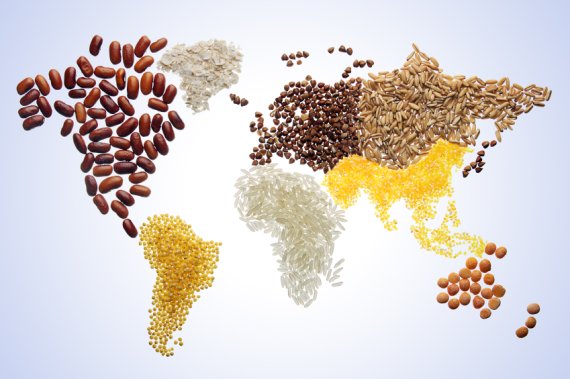In order to increase food security, African farmers need to put more artificial fertilizer on their poor land, runs the standard advice of production ecologists such as Rudy Rabbinge. But it is not always as simple as that, says soil scientist Thom Kuyper. With increasing frequency, he comes across non-responsive soils in Africa: soils that are so exhausted that an injection of artificial fertilizer no longer helps. ‘The fertilizers just go right through it, for lack of humus and soil life.’ The soil becomes a bottomless pit for fertilizer. Many African soils are depleted because for years, farmers have taken more out of their soils than they have but back. In such cases, higher agricultural productions begins with improving the soil structure by adding humus. PhD student Van Kuyper is researching this in Kenya and Ethiopia. How do you increase the amount of organic material in the soil? It is the farmer who has to do it, and invest time and labour in improving the soil. In exchange for this investment, he should be able to raise production in the long term. Does the investment pay off? That depends on land rights. Many farmers lease the land from big landowners. Often these landowners do not make lease agreements for many years at a time, but decide each year which plots of land they need for themselves. In a situation like this, a tenant farmer is not going to invest in better soil fertility. Before doing that, a farmer needs more security. So the soil scientist Kuyper is working with Wageningen social scientists to come up with good agreements about the land between landowners and tenants. Are exhausted soils an African problem? Far from it. Soil fertility is in decline in many parts of the world, including the Netherlands, Brazil and China. We are not returning enough plant waste from the crops to the soil, and we are too inclined to see the soil as a reservoir of nitrogen and phosphate, and to ignore the role of many useful micronutrients. This is why soil quality can go down as a result of ‘balanced fertilization’ or over-fertilization. The organic agriculture sector is already putting this knowledge into practice, but standard agriculture lags behind. Those who disparage organic agriculture – ‘it cannot feed the world’ – could learn a thing or two from the eco crowd. Humus, remember? Further reading
Exhausted soils
How do you increase food security for the hungry populations of developing countries? This question is at the centre of attention in Wageningen this year. Albert Sikkema on the trail of ‘our’ contribution to global food security.

